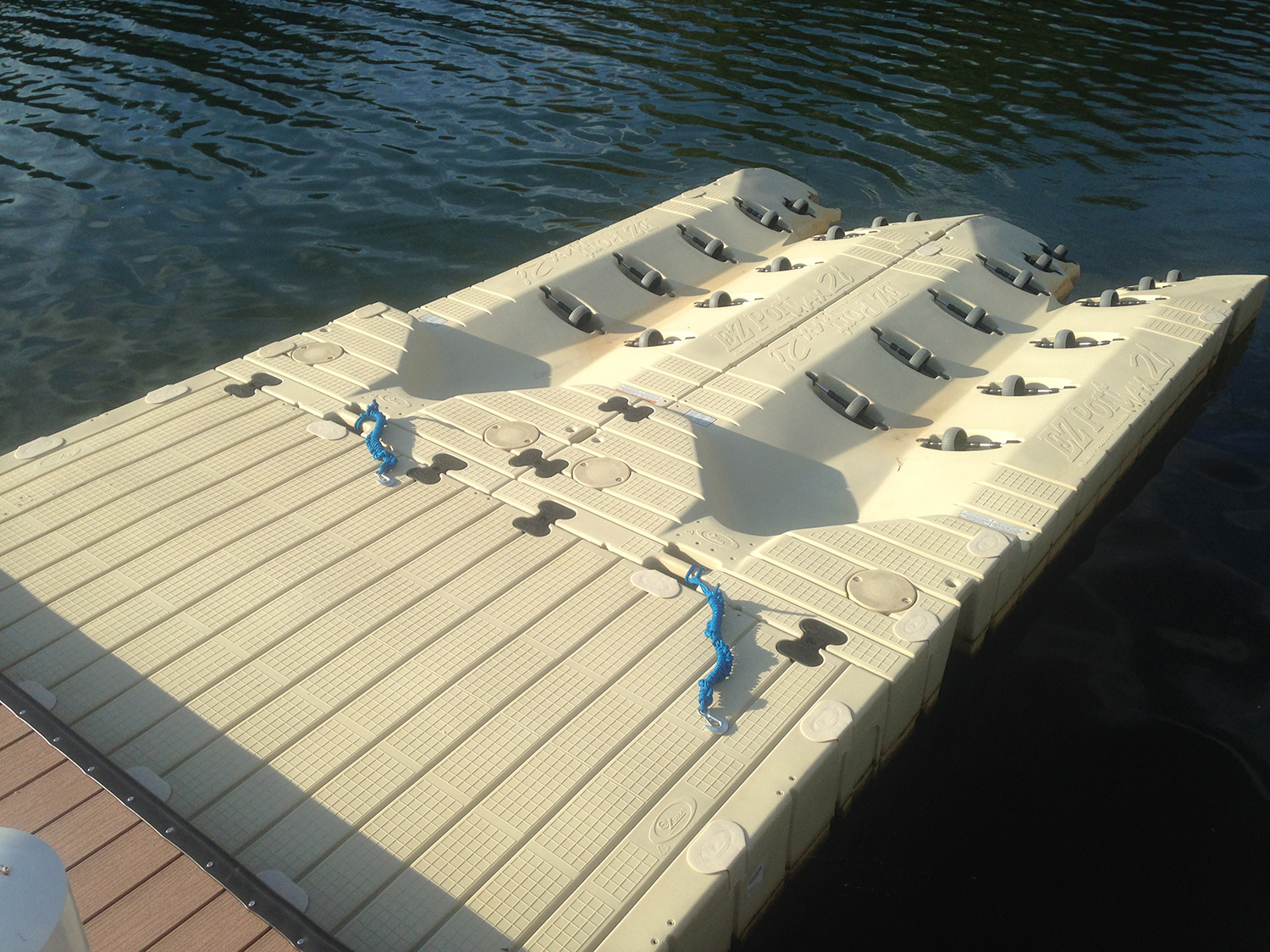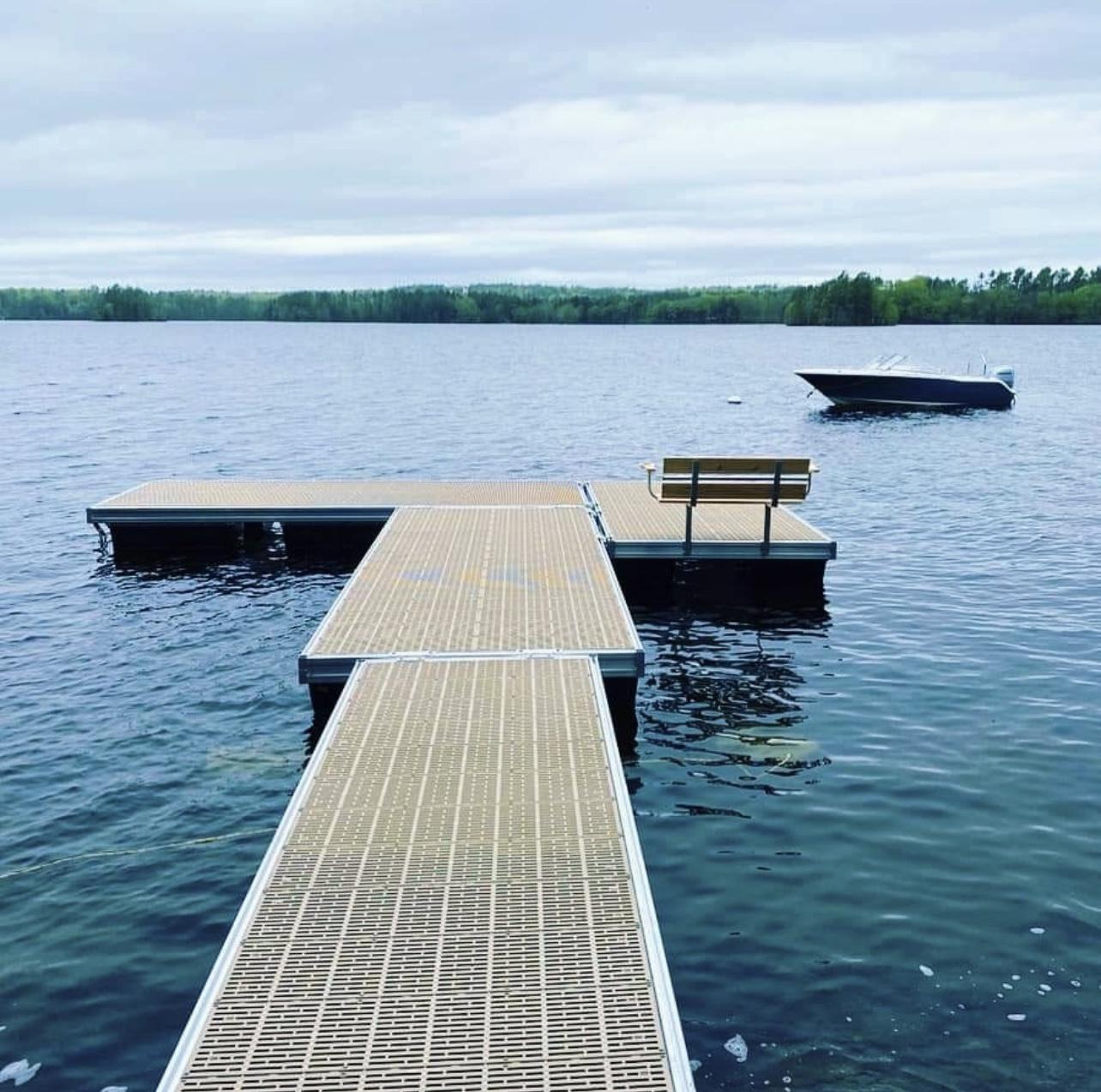Check out the Range of Floating Dock Solutions Designed to Suit Every Seafarer's Needs
Floating Docks: The Suitable Selection for Versatile Water Access
Floating docks existing an engaging option for a range of water access needs, using flexibility that goes beyond traditional mooring choices. Their capability to adjust to fluctuating water levels while making sure security and safety and security makes them particularly beneficial for both leisure and industrial applications. The modular nature of floating docks promotes customization, providing to specific requirements. The subtleties of setup and upkeep, together with the array of applications, call for a closer assessment to completely appreciate their potential benefits and effects for river accessibility approaches.
Advantages of Floating Docks
Floating docks deal countless benefits that enhance water access for numerous applications. Their capability to fall and climb with altering water levels makes them specifically beneficial in environments with changing tides or seasonal variants. This versatility makes certain that vessels can quickly moor without worry for the water's depth, giving a reliable system for recreational, industrial, and industrial usages.
In addition, floating docks are often created from long lasting products that resist deterioration, making them ideal for lasting usage in marine environments. Their setup is generally less invasive than standard fixed docks, lowering the ecological impact and assisting in quicker implementation (floating dock services). This flexibility allows for much easier relocation or reconfiguration according to customer needs or environmental modifications
Safety and security is another crucial advantage; floating docks can supply secure access for individuals getting off or boarding from boats and decrease the risk of accidents connected with unstable surface areas. Furthermore, they can be developed to accommodate a variety of devices, such as fenders and cleats, boosting functionality. Overall, floating docks represent a reliable service for boosting water access throughout diverse fields while advertising safety and security and environmental sustainability.

Kinds Of Floating Docks
Various kinds of floating docks accommodate different requirements and atmospheres, each developed with details functions to enhance functionality. One of the most typical types consist of modular docks, which contain interlocking areas that permit simple customization and development. These docks are optimal for recreational use, as they can be customized to fit various boat dimensions and water problems.
An additional prominent choice is the stationary floating dock, which continues to be anchored in place yet floats with changing water degrees. floating docks. This type is especially fit for areas with very little tidal fluctuations, offering stable access for fishing or swimming. In addition, there are drive-on docks, which include a sloped design that enables watercrafts to easily drive on and off, making them appropriate for personal watercraft and smaller vessels
For commercial applications, durable floating docks are available, created from reinforced products to withstand substantial loads and severe aquatic settings. Lastly, green floating docks utilize lasting products and layouts to lessen ecological impact, typically including features like greenery to sustain local wild animals. Comprehending the various kinds of floating docks makes sure that individuals can choose the most appropriate solution for their details requirements.
Installment Process Introduction
An effective official website setup of floating docks calls for careful preparation and focus to detail to make sure ideal efficiency and security. The initial action involves examining the website conditions, consisting of water deepness, existing, and potential obstacles. This evaluation informs the option of the ideal dock products and layout customized to the details atmosphere.
Next, obtaining required licenses is critical, as many jurisdictions have guidelines pertaining to building on water bodies. The setup can proceed once permissions are safeguarded. Begin by preparing the foundation, which may include anchoring systems or pilings tailored to the dock type and regional conditions.
Adhering to the foundation configuration, assemble the dock sections according to manufacturer specs. Ensure that all elements are securely fastened and lined up to hold up against environmental stress and anxieties. Position the dock in the assigned area, ensuring it is level and stable.

Maintenance Tips and Ideal Practices
After the installation process is total, ongoing maintenance plays a crucial role in making sure the longevity and capability of floating docks. Regular evaluations ought to be carried out to determine any indicators of degeneration, wear, or damage - dock company. Examine for any type of loose installations, fractures, or separation in the dock sections, as these can endanger architectural integrity
Cleaning up the dock is vital to get rid of particles, algae, and other accumulation that can influence its look and safety and security. Make use of a mild pressure wash regularly to preserve cleanliness without causing damage to the surface. In addition, using a safety sealer every few years can aid boost longevity and withstand environmental wear.
Take note of the mooring lines and anchors, guaranteeing they are complimentary and protected from deterioration. Change any kind of abject parts quickly to stay clear of dangers. Seasonal adjustments may additionally be needed; throughout go to website extreme climate condition, enhancing the dock or repositioning can avoid damage.
Applications for Floating Docks
Floating docks serve a plethora of applications, catering to both leisure and industrial requirements. In entertainment setups, they provide smooth accessibility to rivers for tasks such as boating, fishing, and swimming. Their adjustable nature allows for installment in varying water degrees, ensuring stable and risk-free access no matter tidal variations.
Commercially, floating docks are vital for marinas and waterfront organizations. They facilitate the docking of vessels, enabling efficient dumping and loading of goods. Their modular style permits easy expansion or reconfiguration to suit transforming organization needs, making them optimal for boat services, excursion operations, or fishing charters.
In addition, floating docks are utilized in environmental applications such as aquatic research and published here habitat reconstruction. They can serve as platforms for clinical studies, keeping track of water quality, or carrying out wild animals studies without disturbing sensitive environments.
In commercial contexts, floating docks are used in building and construction tasks, giving accessibility to hard-to-reach areas for tools and personnel. Their flexibility, sturdiness, and very little influence on the setting make them an optimal selection for a wide variety of applications, enhancing both functionality and access in various water-based environments.
Conclusion
In verdict, floating docks represent an optimum solution for diverse water gain access to requires, owing to their adaptability, longevity, and modular design. Floating docks serve as a valuable property for leisure, commercial, and ecological projects, making certain trusted accessibility to waterways and promoting lasting practices in water environments.
Floating docks present a compelling solution for a selection of water accessibility needs, offering flexibility that goes beyond conventional mooring alternatives.Floating docks deal many benefits that boost water access for different applications. In general, floating docks represent a reliable service for boosting water gain access to throughout varied markets while advertising safety and security and environmental sustainability.
One more prominent option is the stationary floating dock, which stays secured in location however floats with altering water degrees.In verdict, floating docks stand for an optimal remedy for varied water access needs, owing to their adaptability, toughness, and modular style.